 Your new post is loading...
 Your new post is loading...

|
Scooped by
Jeff Domansky
September 25, 2017 10:30 AM
|
Maggie Haberman started working at the New York Times in 2015 — with just one little problem. She didn’t know what she was supposed to be doing there.“ I was looking for a lane, so I picked up Trump because nobody seemed very interested in Trump,” Haberman said on the latest episode of Recode Decode, hosted by Kara Swisher. “I knew him and I knew his people.” Just two years later, she’s one of the NYT’s best-known reporters thanks to her coverage of Trump’s campaign and, now, his presidency. But for most of her career, Haberman had dreamed of one day being the Times’ chief New York correspondent, covering the city’s “broken” political system. Speaking with Swisher at the 2017 Texas Tribune Festival, along with Washington Post reporter David Fahrenthold, Haberman said she learned “the number one rule” about Donald Trump while working at the New York Post, which he would call frequently as a “source” of gossip about himself. “In his brain, two things are true,” she said. “No one speaks for him except him, even if he actually has a spokesman, and he believes that facts can be changed so that they can be something other than what you thought they were a day ago.”

|
Scooped by
Jeff Domansky
July 12, 2017 10:30 AM
|
Earlier this year, Hack PR had a problem. The unorthodox public relations firm had snapped up a new client, a deep-pocketed entrepreneur with political ambitions. Unfortunately, nobody really knew who he was, and the campaign it launched for him failed to convert into any real coverage save for a couple of pieces in the Huffington Post and The Washington Times. They needed another idea. So, in their words, they hustled.There’s an old Internet joke that says politicians should wear the logos of their donors, much like Nascar drivers wear the logos of their sponsors. Taking inspiration from that, Hack PR pitched the idea to its client that it try and make it law through a California ballot initiative. But unfortunately, this didn’t pan out either. It wasn’t for lack of trying. The firm took the provocative step of printing a full-sized cutout of everyone in the California Legislature, adorned with the logos of Chevron and AT&T, and other prolific donors. These were left at the steps of the Sacramento State Capital building for all to see. But as before, nada. Then....

|
Scooped by
Jeff Domansky
May 2, 2017 12:14 PM
|
This marks the fourth year in a row that Politico Magazine has surveyed the White House press corps, our annual snapshot of the highs, lows and general chaos of trying to cover the most powerful office on earth. Every administration has its own running fights with the press, but this year the context was different from the start: a new president who gets unparalleled media attention, yet has publicly attacked the press over and over since taking office. President Donald Trump has called the media “fake news,” the “enemy of the American people,” “dishonest” and much more; he has singled out individual reporters with criticism and name-calling. At the same time, Trump has welcomed multiple outlets into the Oval Office for interviews, makes a point of praising the journalists he likes, and devours print and TV coverage of him and his staff. And in case there was any doubt that this was a new team with a whole new relationship to the media, for the first time (that we know of), someone in the press corps leaked our questions to the administration—and, for the first time, the White House emailed Politico Magazine demanding detailed answers about the survey and how it was conducted. (The answers are in the fine print at the end of this piece.) So what’s it really like to cover Trump? Does he really treat the media like the “opposition party,” in his adviser Steve Bannon’s words? Finally, how do reporters rate their own coverage of the Trump presidency?...

|
Scooped by
Jeff Domansky
February 21, 2017 11:50 PM
|
“Many of our global clients have already requested that we block this site on our activity.”
An employee for the agency described it to BuzzFeed News as a “preventative measure”, as online advertising is assigned to websites algorithmically.
Omnicom handpicks the sites their clients’ ads run on, which is known as a whitelist, whereas ad exchanges or networks such as Google’s typically work on a blacklist where brands specify which sites not to run on.
The email from management added: “If you are running activity through ad networks such as MediaIQ/Regital, Quantcast & RocketFuel it is worth reaching out to your rep and making sure Breitbart is blacklisted and request a URL level site report over the past 30 days which all should be able to provide.”...

|
Scooped by
Jeff Domansky
February 4, 2017 12:22 PM
|
Under more ordinary circumstances, the cover of the issue for February 13 and 20, 2017—our Anniversary Issue, marking ninety-two years—would feature some version of Rea Irvin’s classic image of the monocled dandy Eustace Tilley. This year, as a response to the opening weeks of the Trump Administration, particularly the executive order on immigration, we feature John W. Tomac’s dark, unwelcoming image, “Liberty’s Flameout.” “It used to be that the Statue of Liberty, and her shining torch, was the vision that welcomed new immigrants. And, at the same time, it was the symbol of American values,” Tomac says. “Now it seems that we are turning off the light.” Here is a slide show of past Anniversary Issue covers....

|
Scooped by
Jeff Domansky
January 29, 2017 1:48 AM
|
But there is a third kind of humor that could ultimately do the most to deflate Trump. Last weekend, in an attempt to explain the new Administration’s insistence on lying about the size of the crowds at Trump’s Inauguration, Kellyanne Conway went on “Meet the Press” to explain that Sean Spicer, the White House press secretary, had been offering “alternative facts.” Trump’s team knows the political power of a concise, catchy, and easily repeated phrase—and they must recognize, in “alternative facts,” a potential crack in the veneer of Trumpism. The phrase is not simply plainly ridiculous, it’s pathetically so. It’s the kind of thing that an aspiring strongman like Trump himself would never say—he just blusters, pretending, or maybe even believing, that the things he says are the real facts, the only facts. Instead, it’s what the semi-reasonable people who work for him have to come up with in order to serve two masters—Trump on the one hand and reality on the other. “He believes what he believes,” Spicer later said about his boss.

|
Scooped by
Jeff Domansky
January 17, 2017 11:38 AM
|
Donald Trump and his forthcoming presidency may be the greatest gift to Washington journalism since the invention of the expense account. His unorthodox approach to politics and governance has vaporized the standard, useful, yet boring script for reporting on a new administration’s doings. At his news conference last week, Trump began the process of washing the press completely out of his fake hair as he castigated CNN and BuzzFeed for reporting on the oppo-research dossier compiled on him. “Fake news,” said the man who has appeared on InfoWars and commended the outlet’s efforts. Trump’s surrogate Newt Gingrich took to Sean Hannity’s program on Fox to assist in the maiming of the media. Trump and his team “need to go out there and understand they have it in their power to set the terms of this dialogue,” Gingrich said on the Jan. 11 episode. “They can close down the elite press.” Next up came Reince Priebus’announcement that Trump might evict the presidential press corps from the White House for lesser lodging in the adjacent Old Executive Office Building, and Sean Spicer’s admonition that reporters “adhere to a high level of decorum at press briefings and press conferences,” according to a readout of his two-hour summit with the head of the White House Correspondents’ Association. (Or else what, one wonders?) Now, before the Committee to Protect Journalists throws up the batsign and the rest of us bemoan Trump’s actions as anti-press—which they are—let’s thank the incoming president for simplifying our mission. If Trump’s idea of a news conference is to spank the press, if his lieutenants believe the press needs shutting down, if his chief of staff wants to speculate about moving the White House press scrum off the premises, perhaps reporters ought to take the hint and prepare to cover his administration on their own terms. Instead of relying exclusively on the traditional skills of political reporting, the carriers of press cards ought to start thinking of covering Trump’s Washington like a war zone, where conflict follows conflict, where the fog prevents the collection of reliable information directly from the combatants, where the assignment is a matter of life or death....

|
Scooped by
Jeff Domansky
December 20, 2016 10:53 AM
|
Speaking in early December at a ceremony to honor Harry Reid’s retirement from the US Senate, Hillary Clinton took aim at a target that would have been totally unfamiliar to audiences as recently as the summer of 2016: fake news. She spoke of “an epidemic” of the stuff that has “flooded social media” over the past year and “can have real-world consequences.” This was reported largely as commentary on the Pizzagate conspiracy theory, which had recently led to an alarming armed standoff at DC’s Comet Ping Pong restaurant. But it was also pretty clearly an allusion to her own recently failed presidential campaign, especially because she spoke favorably of the idea of bipartisan legislation to curb foreign propaganda news, arguing that “it is imperative that leaders in both the private and public sector step up to protect our democracy and innocent lives.”...

|
Scooped by
Jeff Domansky
December 8, 2016 12:39 PM
|
A new Pew Research Center survey finds that, for the most part, the large majority of Americans do not feel that information overload is a problem for them. Some 20% say they feel overloaded by information, a decline from the 27% figure from a decade ago, while 77% say they like having so much information at their fingertips. Two-thirds (67%) say that having more information at their disposals actually helps to simplify their lives. The survey shows that most Americans are comfortable with their abilities to cope with information flows in their day-to-day lives. Moreover, those who own more devices are also the ones who feel more on top of the data and media flows in their lives. Those who are more likely to feel information overload have less technology and are poorer, less well-educated and older....

|
Scooped by
Jeff Domansky
December 7, 2016 4:20 AM
|
You may think you are prepared for a post-truth world, in which political appeals to emotion count for more than statements of verifiable fact. But now it’s time to cross another bridge — into a world withoutfacts. Or, more precisely, where facts do not matter a whit. On live radio Wednesday morning, Scottie Nell Hughes sounded breezy as she drove a stake into the heart of knowable reality: “There’s no such thing, unfortunately, anymore, of facts,” she declared on “The Diane Rehm Show.” Hughes, a frequent surrogate for President-elect Donald Trump and a paid commentator for CNN during the campaign, kept defending that assertion, although not with much clarity of expression. Rehm had pressed her about Trump’s recent evidence-free assertion on Twitter that he, not Hillary Clinton, would have won the popular vote if millions of immigrants had not voted illegally....

|
Scooped by
Jeff Domansky
November 25, 2016 1:19 PM
|
Everyone from pollsters to pundits got the result of the US presidential election wrong.
But few can have made it in such an expensive manner.
Newsweek and a partner that prints up special commemorative issues has been forced into an embarrassing recall, after it sent out 125,000 copies of its Madam President issue designed to celebrate Hillary Clinton's win....

|
Scooped by
Jeff Domansky
November 13, 2016 10:33 AM
|
The Dutch inventors say that their machine can filter 95% of ultra-fine particles and 100% of fine particles out of the air. It cleans 80,000 m³ of air per hour within a 300-meter radius and up to a height of 7km. "It's a large industrial filter about 8 metres long, made of steel ... placed basically on top of buildings and it works like a big vacuum cleaner," said Henk Boersen, a spokesman for the Envinity Group, which unveiled the system at an energy conference in Amsterdam.“ A large column of air will pass through the filter and come out clear,” Boersen told AFP at the conference. The Envinity Group is a tech start-up that aims to improve the future for people, animals and the environment in a sustainable manner. Many businesses and countries are already interested in the cleaner, according to the group....

|
Scooped by
Jeff Domansky
November 12, 2016 10:30 AM
|
IN CASE YOU didn’t notice, there was a presidential election this week. Just kidding—there was no way you could have failed to notice that, even if you wanted to. By the time President-elect Donald Trump’s victory became imminent Tuesday night, it was already the subject dominating everything, online and off, as the Internet (and everyone else) started reacting to the outcome. Days later, that’s still the case. Here are some of the conversations you might have missed over the past few days.
|

|
Scooped by
Jeff Domansky
July 26, 2017 11:21 PM
|
Let's begin by synchronizing our watches. We are in the Eastern time zone.
The legislative session is over, and Canadian Prime Minister Justin Trudeau is about to give his wrap-up press conference. The reporters trudge into the gallery, grumbling, as reporters like to do, about traffic and editors. Someone gives the "10 seconds" signal, and Trudeau strides to the podium. He gives a nod and starts ticking off his accomplishments. The first is self-praise for cutting taxes on the middle class and raising them on the one percent. "We've given nine out of 10 families more money each month to help with the costs of raising their kids," Trudeau says.
Justin Trudeau introduced a bill that would make marijuana legal – but what will that look like, and what will it mean for the U.S.?
It's strange to witness: He speaks in a modulated, indoor voice. His dark hair is a color found in nature. At home, there is a glamorous wife and three photogenic children, still not old enough to warm his seat at next week's G-20 summit or be involved in an espionage scandal. When Trudeau moves on to his feminist bona fides (women and minorities make up more than half of his Cabinet), he pauses for a moment, but does not lose his train of thought. His words are coherent and will not need to be run through Google Translate when he is done (except if you want to translate his French into English)....

|
Scooped by
Jeff Domansky
June 29, 2017 9:39 AM
|
Political viewers of all stripes have been inundated with news about President Donald Trump, whose immigration policies and potential ties to Russia have sparked controversy while his tweets routinely set digital chatter ablaze. Socialbakers just wrapped up eight months of research, looking at Twitter consumption around Trump-related subjects in six countries and offering eye-opening insights into just how immersed consumers have become in all things Donald. "Audiences are tuning in more, but polarization means you’re seeing a lot of negative reactions to political statements,” noted Moses Velasco, chief product evangelist at the Prague, Czech Republic-based tech agency. Despite the raw, public discourse, media brands have undoubtedly benefitted: CNN, Fox News and MSNBC saw double-digit TV ratings gains in May, while subscriptions for The Washington Post and The New York Times have jumped considerably. Here, Socialbakers’ statistics spotlight the impact of Trump’s Twitter. (And if you keep scrolling past the infographic, you will see a video with SocialBakers founder Jan Rezab analyzing the data.)...

|
Scooped by
Jeff Domansky
February 22, 2017 4:56 PM
|
The 2016 election and new administration come accompanied by a renaissance of political image-making: The release of new cover art by magazines like Der Spiegel and Time are met with thousands of shares and retweets. Each photograph and illustration is analyzed and picked apart by commentators. And fomenting all of this is a protest movement with a flair for signage that remixes, reappropriates, and borrows the work of these artists.
Not since George Lois's iconic work for Esquire in the '60s has cover art enjoyed so much popular and critical success. It’s a fascinating time to be an illustrator, designer, or painter working on political subjects. Co.Design asked some of the voices and pens behind today’s iconic cover art about their work—and what’s changed in the past three months....

|
Scooped by
Jeff Domansky
February 13, 2017 11:58 PM
|
Several people have figured out that the best way to get a message to President Trump is to do so via a TV program he is likely to watch, but no one has gone to the lengths that John Oliver has to get a television-based message to the president.
On Sunday’s Last Week Tonight with John Oliver, the first new episode since Trump’s inauguration, Oliver revealed that his show has arranged to run a Trump-targeted ad locally in the Washington D.C. market on all three cable news shows Monday morning, between 8:30 a.m. and 9 a.m.
Oliver made the announcement during a segment on the show called “Trump vs. Truth,” about Trump’s reliance on information gleaned from dubious and often false outlets like Brietbart and Infowars, and his alarming tendency to lie about easily-debunked topics such as his inauguration crowd size, much as he did for a decade about the ratings for his NBC series, Celebrity Apprentice....

|
Scooped by
Jeff Domansky
January 31, 2017 11:27 PM
|
All modern American presidents have seen their disapproval rating surpass the 50 percent mark at some stage after taking office. Some reached that milestone faster than others but generally, it took all of them hundreds of days to do so. George Bush senior lasted an impressive 1,336 days before he hit 50 percent disapproval in Gallup's polls while Bill Clinton lasted 573 days before reaching majority disapproval. As a result of the federal debt crisis, Barack Obama passed the 50 percent mark 936 days into his presidency.
Donald Trump has reached majority disapproval in record time, just 8 days. When he entered office, an initial poll from Gallup showed that 45 percent of Americans approved of him, 45 disapproved and 10 percent were undecided. In his first week, he announced construction of the border wall, halted immigration from seven countries, gutted the Affordable Care Act and reversed U.S abortion policy, pushing his disapproval rating to 51 percent, according to a Gallup poll released on January 28....

|
Scooped by
Jeff Domansky
January 20, 2017 11:08 PM
|
Donald Trump doesn’t always speak with proper grammar. And he doesn’t always speak with facts. But he does speak with two other powerful tools: anger, and even more so, volatility.
The data visualization firm Periscopic lays it out in a new data visualization called On The Trump Emoto-Coaster. "If it felt like you were on an emotional roller coaster during this past Presidential election, just look at what was happening to Donald Trump," the team writes. "As shown in 10 of the major speeches he gave from July through December, there’s a rise and fall of intense emotion." As Trevor Noah so cuttingly put it last year, Trump has the unmodulated mentality of a toddler....

|
Scooped by
Jeff Domansky
January 17, 2017 11:27 AM
|
What can this small chapter tell us about what’s to come? That Trump will be what columnist Frida Ghitis of the Miami Herald calls “the gaslighter in chief” — that he will pull out all the stops to make people think that they should believe him, not their own eyes. (“Gaslighting” is a reference to the 1940s movie in which a manipulative husband psychologically abuses his wife by denying the reality that the gaslights in their home are growing dimmer and dimmer.) “The techniques,” Ghitis wrote, “include saying and doing things and then denying it, blaming others for misunderstanding, disparaging their concerns as oversensitivity, claiming outrageous statements were jokes or misunderstandings, and other forms of twilighting the truth.”...

|
Scooped by
Jeff Domansky
December 12, 2016 2:21 AM
|
Like our favorite celebrities, brands aren’t perfect. Bad PR is a part of life because people aren’t perfect and the companies they run follow suit. Recently New Balance became the first company to publicly back Donald Trump, a very divisive figure for reasons you would have to be sleeping under a rock to not know already. Priding themselves on being a brand that develops their products on American soil, New Balance saw Trump’s election as an opportunity for business growth and one that would bring more jobs to Americans. However, that is their opinion and not some universal truth. Politics is a tricky place for a brand to choose sides when there are so many issues that people take seriously. Thousands of sneakerheads were outraged at New Balance’s political stance. So outraged that they denounced their love for the brand all over social media by literally posting pictures of them throwing the sneakers away and burning them. Things really spiraled out of control when neo-nazis procclaimed the sneaker to be the official sneaker of white people. Yes, that really happened. Obviously publicly backing a divisive president-elect has some serious downsides with the public, so what do we do as consumers after our favorite brands choose to do something against our personal values?...

|
Scooped by
Jeff Domansky
December 7, 2016 11:26 AM
|
Three weeks after Donald Trump won a historic victory to become the 45th president of the United States, the media postmortems continue. In particular, the role played by the media and technology industries is coming under heavy scrutiny in the press, with Facebook’s role in the rise of fake news currently enjoying considerable coverage. This represents a shift from earlier in the campaign, when the volume of media airtime given to Trump was often held culpable for “The Apprentice” star’s political ascendancy. In truth, a Trump presidency is – in part – a reflection of the status and evolution of the media and tech industries in 2016. Here are 10 ways that they combined to help Trump capture the White House in a manner not previously possible. Without them, Trump might not have stood a chance....

|
Scooped by
Jeff Domansky
November 30, 2016 8:50 PM
|
Some MIT faculty, led by Roger Levy and Nancy Kanwisher, posted a short message regarding what they believe in the wake of Donald Trump’s election. More than 400 faculty have now signed it. As an MIT alumnus, I read this statement and wondered about the platitudes it contains: why make this statement, and why ask faculty to sign it? The answers may make you uneasy.
The platitudes in this statement are problematic
The 233-word statement is well-written and direct — it’s free of jargon, passive voice, and weasel words. If you think only about the words, it seems clear and effective. But its filled with platitudes nobody disagrees with. The fact that these faculty need to make statements of this kind says a lot about them, and the times we live in. I’ve appended my comments in italic....

|
Scooped by
Jeff Domansky
November 17, 2016 2:46 AM
|
The President-elect's supporters are threatening to boycott Pepsi (PEP) over fabricated statements circulating on social media. Twitter users, many citing debunked news articles, claim PepsiCo (PEP) CEO Indra Nooyi told Trump fans to "take their business elsewhere. "Sites designed to trick people, including Truthfeed and Gateway Pundit, published the fake quote while encouraging readers to stop buying Pepsi's products. Gateway Pundit also incorrectly claimed PepsiCo's stock plunged 5% because of the comment that Nooyi never actually made. Nooyi never told Trump's supporters that Pepsi doesn't want their business and she even congratulated the president-elect on his victory. But she condemned the ugly rhetoric of the campaign....

|
Scooped by
Jeff Domansky
November 13, 2016 10:14 AM
|
There’s a lot of talk right now that polling failed. But Trump’s win was hardly an unpredictable “black swan” event. All the evidence was there, if you knew how to read it.In fact, the polls did ok, 2016 was not even a particularly large miss by historical standards. Most states ended up within the polling margin of error, and the more careful forecasts only gave Clinton a 70 percent chance. By the last week before the election, a Trump victory was twice as likely as losing a game of Russian Roulette. Yet the most optimistic predictions gave Clinton a 90 percent chance, because they missed a fundamental fact: polling errors tend to affect many states at once, and in the same direction. To understand the vast gulf between 70 percent and 90 percent it helps to convert probabilities to odds, the ratio of chances to win against chances to lose. A 50% chance is a coin flip, or 1:1 odds. A 66% chance – around where FiveThirtyEight’s put Clinton the last week before the election – is 66:33 or 2:1 odds. If you roll that die, it shouldn’t be surprising when it comes up red....
|



 Your new post is loading...
Your new post is loading...




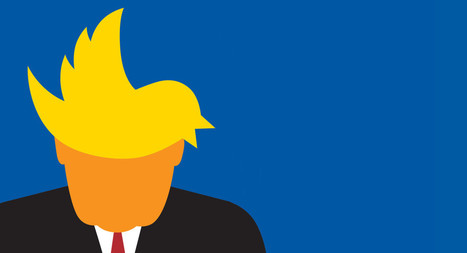
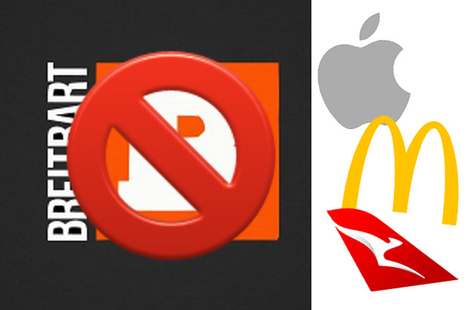
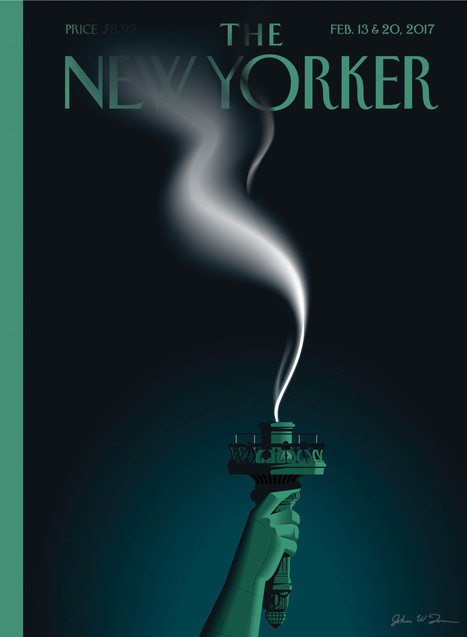
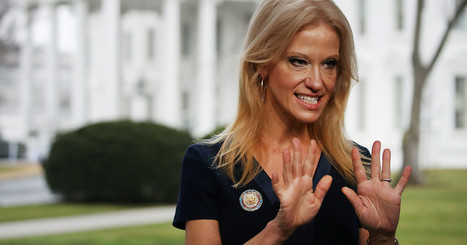



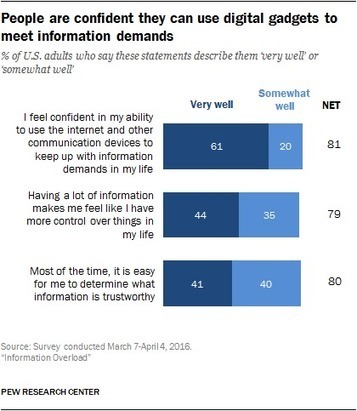
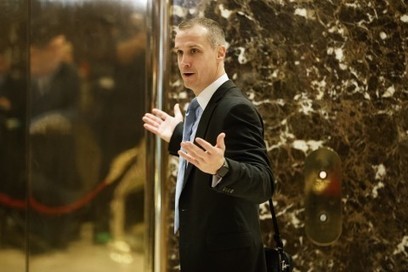


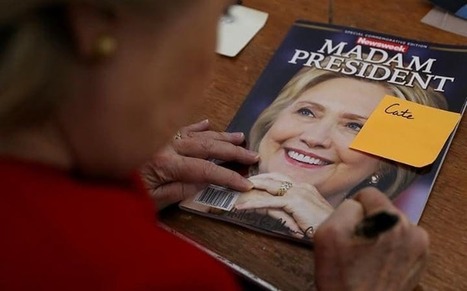



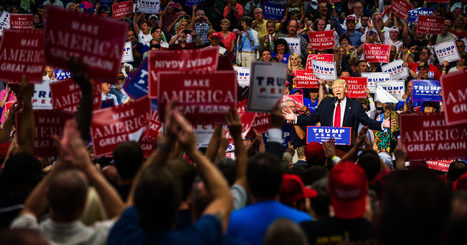
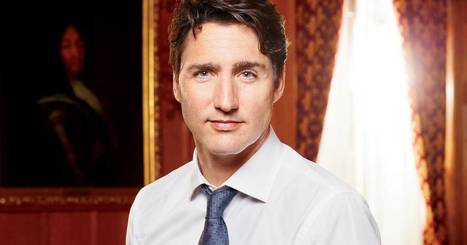
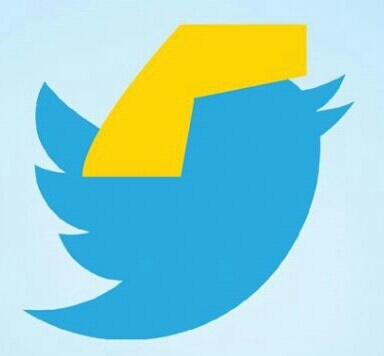
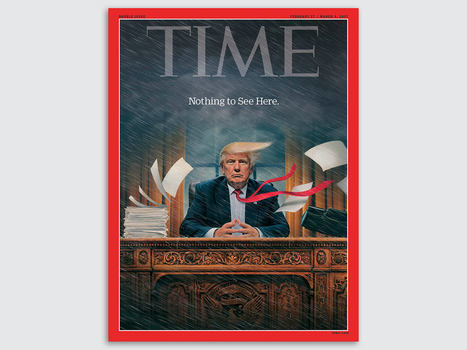

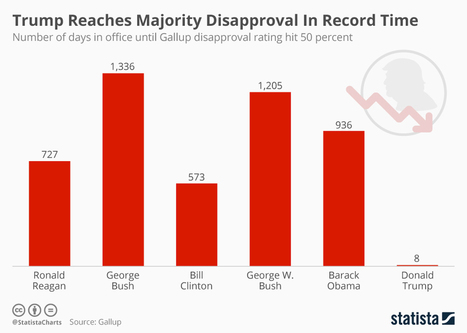

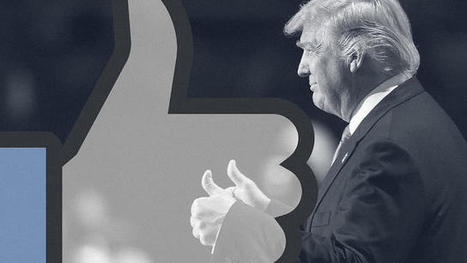
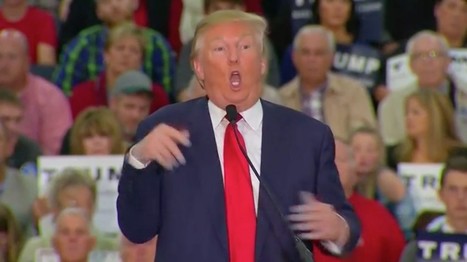
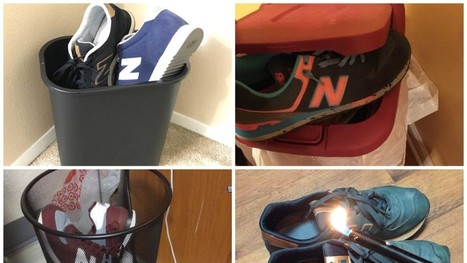
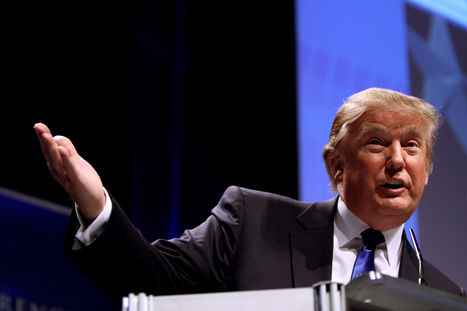









On the latest Recode Decode, the two journalists explain how their careers set them up to cover the Trump Era.